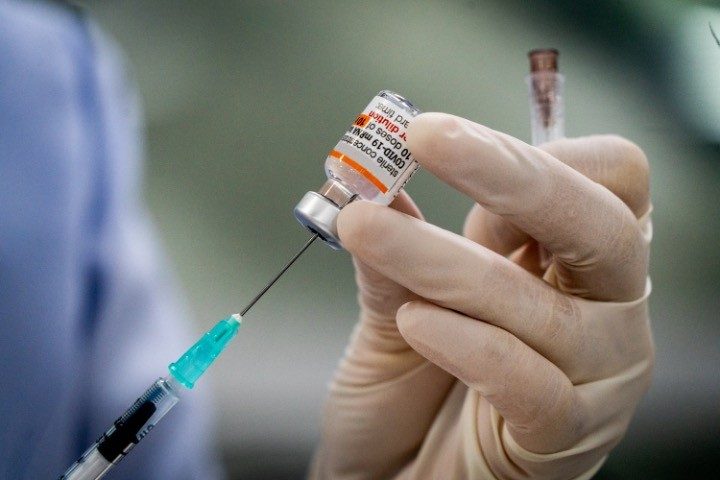
Having previously urged Americans to get vaccinated for Covid-19 to stop the virus from spreading, Dr. Anthony Fauci confessed in a recent research paper that the vaccines cannot control the pandemic and could not reasonably have been expected to do so.
The paper, “Rethinking next-generation vaccines for coronaviruses, influenzaviruses, and other respiratory viruses,” published last month in the journal Cell Host & Microbe, was authored by the former National Institute of Allergy and Infectious Diseases (NIAID) director and two of his former colleagues, David Morens and Jeffery Taubenberger.
The authors argue that “past unsuccessful attempts to elicit solid protection against mucosal respiratory viruses [such as SARS-CoV-2, which causes Covid-19] and to control the deadly outbreaks and pandemics they cause have been a scientific and public health failure that must be urgently addressed.”
The problem scientists face in crafting vaccines for these viruses is that the viruses “replicate in the human respiratory mucosa without infecting systemically” and thus do not trigger a full immune-system response, explain Fauci, et al. “Because these viruses generally do not elicit complete and durable protective immunity by themselves, they have not to date been effectively controlled by licensed or experimental vaccines.”
For example, flu vaccines have hardly changed since they were introduced in 1957. “Over the years, influenza vaccines have never been able to elicit durable protective immunity against seasonal influenza virus strains,” write the authors. “Although current influenza vaccines reduce the risk of severe disease, hospitalization, and death to some degree, their effectiveness against clinically apparent infection is decidedly suboptimal, ranging from 14% to 60% over the past 15 influenza seasons. Furthermore, the duration of vaccine-elicited immunity is measured only in months. Current vaccines require annual re-vaccination with updated formulations that are frequently not precisely matched to circulating virus strains.”
If, in 66 years, flu vaccines could not be improved to the point where they can control disease, why would anyone expect hastily concocted, experimental SARS-CoV-2 vaccines to be effective in stopping the spread of that virus? Indeed, the authors note that “as variant SARS-CoV-2 strains have emerged, deficiencies in these vaccines reminiscent of influenza vaccines have become apparent…. They elicit incomplete and short-lived protection against evolving virus variants that escape population immunity.”
Fauci, et al., even concede that “SARS-CoV-2 vaccines” are effective “only [in] preventing severe disease,” not in “limiting viral replication or preventing transmission.”
They also suggest that, given the fact that flu viruses and coronaviruses “tend to repeatedly re-infect people over their lifetimes without ever eliciting complete and durable protection” from the immune system, it is unrealistic to assume that vaccines would provide any better protection. “If natural mucosal respiratory virus infections do not elicit complete and long-term protective immunity against reinfection,” they ask, “how can we expect vaccines, especially systemically administered non-replicating vaccines, to do so?”
In short, Fauci and his cohorts in the public-health establishment had to have known in 2020 that developing Covid-19 vaccines that would bring the pandemic permanently under control was extremely unlikely even over the course of decades, let alone months. Nevertheless, they happily promulgated lies about the shots, such as claiming that vaccinated individuals have “a very high degree of protection” against the virus (Fauci in July 2021) and are “dead ends” for it (Fauci in May 2021). Moreover, they also pushed for vaccine mandates as a means of stopping the spread of Covid-19. “I respect people’s freedom,” said Fauci, but “enough is enough.”
Those mandates, too, forced a one-size-fits-all “solution” to the pandemic on millions of Americans of various ages, sexes, and risk factors, yet Fauci and company write in their paper that “it is inevitable that various human risk groups may require different vaccines or vaccine formulations” — or, one might add, perhaps no vaccines at all.
“We are excited and invigorated,” they state, “that many investigators and collaborative groups are rethinking, from the ground up, all of our past assumptions and approaches to preventing important respiratory viral diseases and working to find bold new paths forward.”
In light of the dismal failure of the various Covid-19 mitigation strategies, it would also be a good time for politicians and bureaucrats to rethink their own “assumptions and approaches” to infectious diseases — and especially to liberty.



